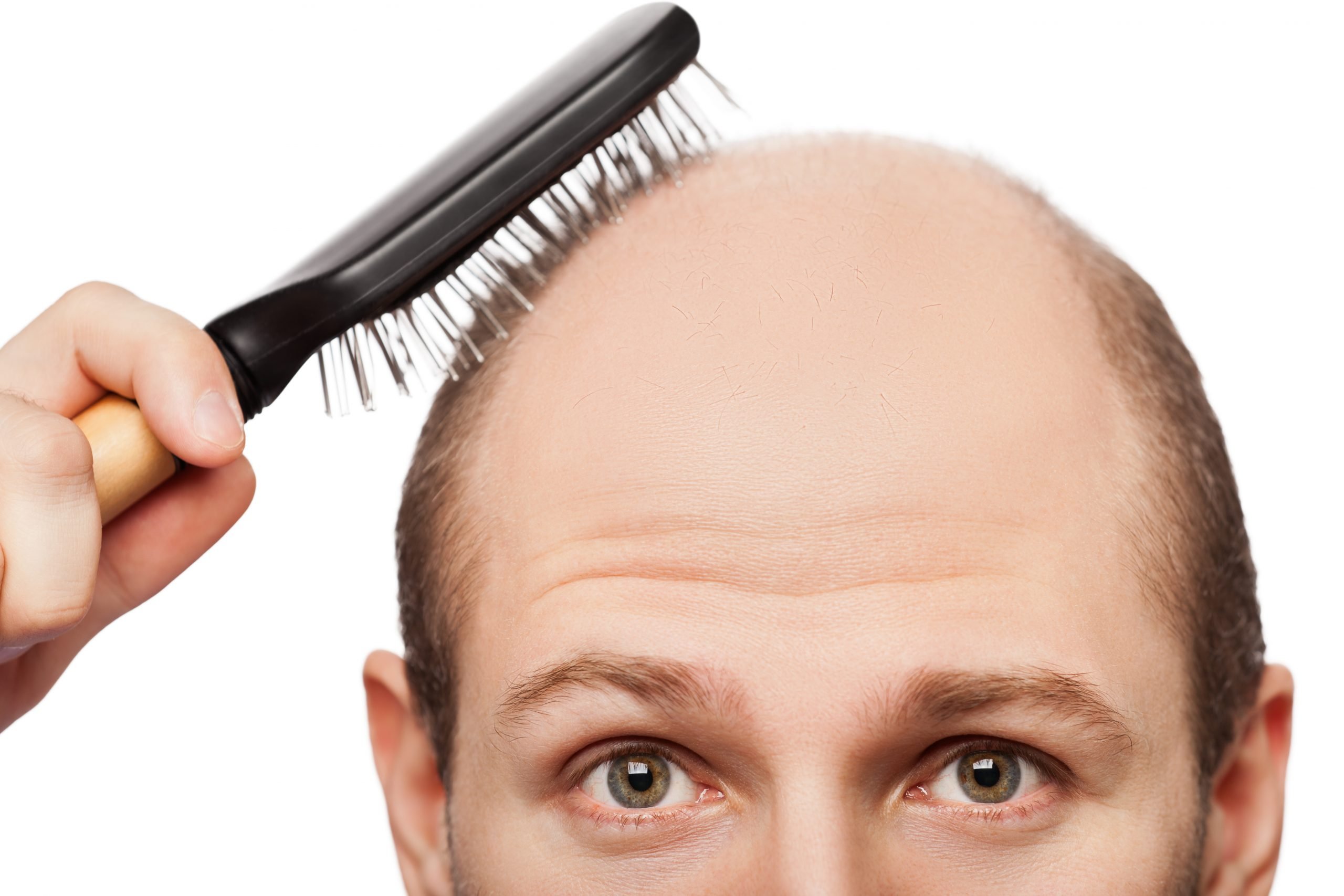
Page Contents
The primary goal of hair loss recovery is to prevent further loss of hair and improve the existing follicles’ health condition. After that, the next step is to try and re-grow the hair on the parts affected by alopecia.
It depends on the healing of the damaged follicles, restoration of proteins and nutrient supplies as well as circulation of blood through the veins, and healing of hypothyroidism symptoms on the scalp surface and skin layers.
Hence, hypothyroidism and hair loss recovery are linked to the treatment and healing of symptoms.
Hypothyroidism and Hair Loss Recovery | Common Causes & Treatments

The count of T3 is stated to be between 75ng and 200ng per Deciliter of blood. However, when the levels go below these levels, it results in hypothyroidism.
1. Auto-Immune Hypothyroid Problem
If the patient has an autoimmune thyroid disorder, the probability of hair loss recovery is stated to be very less. Hair loss is mainly through scarring, diffusion, and result in a higher level of baldness.
However, the treatments through immuno-suppressants have been known to produce considerable relief from this type of thyroid disorder.
Levothyroxine Sodium Vial in the form of muscle injection is known to be highly effective in healing the disorder.
But the probability of hair growth is said to be moderate when the hypothyroidism and hair loss recovery treatment is supplemented with folate, Vitamin D, and vitamin B12.
2. Post Natal Hypothyroid Problem
Postnatal thyroid problem is common among women with the type-1 diabetic problem. It is caused by anti-thyroid-antibodies.
Levothyroxine is stated to be the recommended medication for treatment with folate and vitamin supplements for hair loss recovery.
However, the process could be time-consuming with three to four months for moderate hair re-growth on bald spots. But the treatment is also known to cause hair loss among some patients.
Hence, consultation with the gynecologist is the only solution to get the right kind of treatment for postnatal hypothyroidism recovery.
3. Congenital Hypothyroid Problem
Congenital hypothyroid problem is known to occur from the time of birth. In some patients, hair loss could occur at the early ages of childhood.
Levothyroxine medication seems to be highly effective for the early stage for congenital hypothyroidism.
4. Hormonal Hypothyroid Problem
Malfunction of Thyroid Stimulation Hormone is stated to be the most common cause among adults for Hypothyroidism.
Interestingly, levothyroxine treatment with high fiber content diet can restore the hair growth to considerable levels.
Minoxidil is stated to be another effective cure for the treatment of telogen phase hair loss resulting from hormonal hypothyroid.
Hypothyroidism Specific Treatments
Stabilizing the thyroid hormone count in blood seems to be the most recommended method of treatment for hypothyroidism. It can also promote the healing of hair follicles on the scalp and hair growth.
1. Thyroid Replacement Therapy
Thyroid replacement therapy is stated to be effective among thyroid patients, regardless of the cause and the intensity of the disorder.
The significant percentage of hair recovery among the patients from 79.4% to 86% seems to be a healthy sign for the effectiveness of this treatment.
According to a certain study:
2. Estrogen Replacement Treatment
Estrogen replacement is stated to be an effective treatment procedure for hypothyroidism and hair loss recovery among women.
Estrogen can be useful for the T4-Binding Globulin (TBG) synthesis. TBG is stated to be one of the potent factors for the restoration of hair growth among women.
Experience shows the growth to accelerate after women with hypothyroid go through menopause. It is the time when the level of estrogen is stated to be very low. The result could be increased in hair loss.
3. EUTHYROID Treatment
The disturbance in the status of thyroid gland before the initiation of hypothyroidism is stated to be EUTHYROID. There could be many causes for the condition, including hereditary, iodine deficiency, etc.
Levothyroxine and iodine-based medication are stated to be effective for EU hair loss and hypothyroidism recovery.
The intensity of hair loss may not be as high as in the advanced stages. But it may vary, depending on the other related medical conditions related to EUTHYROID.
4. TSH Replacement Treatment
TSH replacement treatment is stated to be highly effective for the restoration of the T3 and T4 hormone production from thyroid glands.
It is highly beneficial for patients with TSH levels less than 0.1mU/l/. Restoration of T4 hormone can directly affect the health level of hair follicles (HF).
Furthermore, the significant increase in the hair growth phase results in restoration of follicles on the scalp areas affected by alopecia. HF cycling becomes more efficient.
Hair regeneration is faster and the telogen phase reduces considerably. The other benefit of TSH treatment is the formation of the pigmented hair shaft.
Moreover, keratin regeneration is one of the significant benefits of TSH treatment. The high growth of keratinocytes is responsible for the strengthening of hair follicles and shaft. They are highly responsive to an increase in the count of T3 and T4.
That’s not all, it can also enhance the synthesis of melanin on the scalp’s hypodermis layer. It leads to the regeneration of hair follicles and collagen.
Coagulation of hair shaft can also result in increasing hair shaft density among men and women after TSH treatment.
TGF-Beta-2 expression control is the other vital benefit of TSH treatment. It can reduce most of the antibodies which inhibit the production of T3 and T4 hormones from the thyroid gland.
Moreover, T3 and T4 are also responsible for the pigmentation of HF. It can significantly improve the health conditions of HF and promote hair color formation.
The lifespan of HF increases considerably due to TSH treatment. It’s also advisable that you consult a dermatologist as he can provide the best guidance for TSH treatment duration, dosage, and protection from probable side effects.
Synthesis of melanin is not only helpful for pigmentation, but also the overall health of HF. The regression and hair fall cycle reduction lead to the growth of dense hair follicles on the scalp.
The patient can get significant results from hair loss and hypothyroidism recovery.
Post Treatment Procedures
Diet control and lifestyle changes are helpful to sustain hair growth and reduce hair loss during the post-treatment period.
1. Kelp
Kelp is seaweed which can promote hair growth after hypothyroid treatment to a certain extent. Though kelp supplements are easy to consume, it is better to consume kelp naturally by making special recipes.
The addition of heavy metals and other ingredients will be very less. Hence, the probability of side effects is stated to be very less.
2. Saw palmetto
Saw Palmetto is the other diet which can help improve hair growth in the post hypothyroid treatment.
It is stated to strengthen HF and increases shaft density. It is possible to consume it in the form of supplements or naturally through food recipes.
Growth Time
Patients in the mild and moderate range of hypothyroidism seem to recover faster after treatment.
While patients with intense symptoms take more time to recover. The density of hair may also not be the same for every patient undergoing hypothyroid treatment.
The best practice is to consult your dermatologist and thyroid expert to learn more about hypothyroidism and hair loss recovery.







[…] Hypothyroidism and Hair Loss Recovery […]
[…] in men generally comes through Genetics, male hormones, autoimmune problem, stress, chemotherapy, hypothyroidism, HIV/AIDS, malnutrition, radiation therapy, fungal infection, sarcoidosis, and lupus erythematosus […]
I’ve been losing hair due to stress, and that is why I would like to look for a PRP Hair Restoration service. It never occurred to me that seaweed may promote healthy growth. I also agree with you that it will be a great idea to try the Palmetto diet.